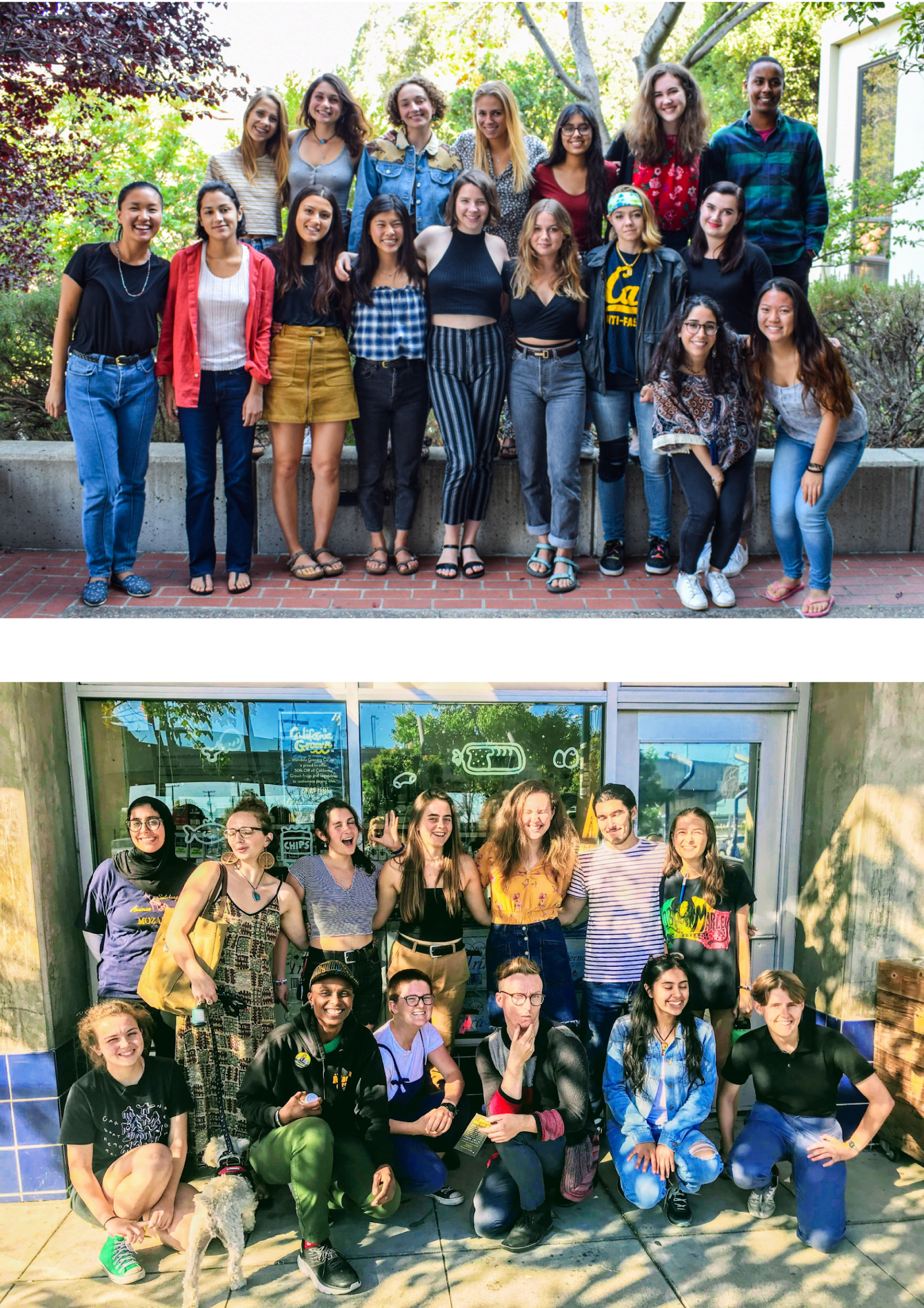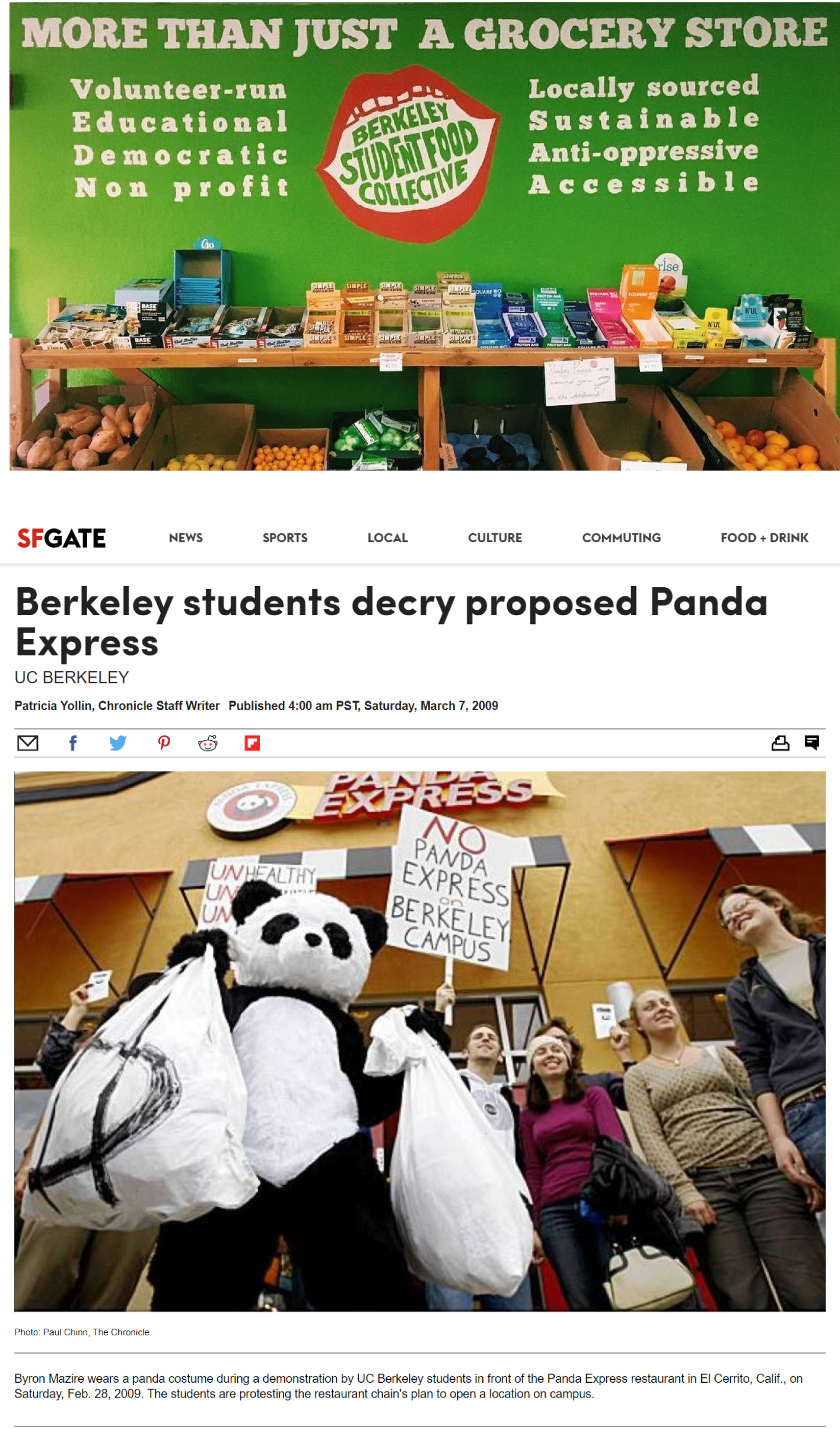

Project Lead

Design Consultant

Design Consultant

Design Consultant

Operations Associate @ BSFC

Executive Director @ BSFC
With the goals of attracting new members and improving member experience of the Berkeley Student Food Collective, we conducted in-depth interviews and a literature review to better understand members’ experiences, the key components of successful food collective organizations, and community needs.
The Berkeley Student Food Collective (BSFC) is a non-profit volunteer-run grocery store. It is dedicated to “providing fresh, local, healthy, environmentally sustainable, and ethically produced food at affordable prices to the Berkeley campus and greater community.”
The Berkeley Student Food Collective membership was not representative of the community it aimed to serve and its leadership structures were unclear. The Collective wanted to enact effective structural changes that would lead to acquiring new membership from the community and enhancing the experience for existing members.

both prospective and current



Our team provided a detailed literature review of existing food cooperatives and used the resulting information to design and carry out an in-depth survey of members and patrons of BSFC. We also conducted directed interviews to learn more about the needs of the student community.


We reviewed organizations with similar goals to the Collective and found that cooperative success and function seemed to generally stem from:



We decided to conduct one-on-one interviews as we felt this would yield more detailed and in-depth insights compared to
basic general surveys.
It was found that members typically joined the Collective because of the principles and ideals that it upholds rather
than any incentives associated with membership.
“It’s a really big group, so it’s hard to get to know people. Meetings are not consistent and there is not
accountability for attendance. These things make it really hard to see the food collective as a cohesive community.”
-BSFC member
The trend in member responsed that pointed to a non-unified collective made us give special attention to recommendations
that related to this concern. Encouraging greater unity and being more strict about policies are two ways to begin
addressing this issue.



We spoke with the Vice President of Student Affairs for Berkeley about the student community and its relationship with the Collective. In order to improve the diversity of the Collective’s membership and users, she recommended that the Collective strive to be more intentional about serving marginalized communities. “Sometimes it's not about students coming to you, but you going to students.”
The director of COFED (operations), an organization that works with food co-ops and focuses on inclusion, was asked about how to better engage marginalized groups. Her suggestions included:
